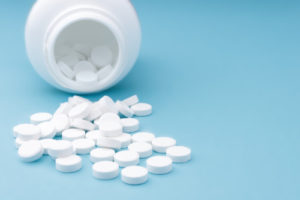Bloomberg recently released an article about how the opioid crisis doesn’t only affect those struggling with opiate addiction, but that it makes everyone poorer. “It’s undermining people’s ability to work,” the author writes. The opioid crisis is a tragedy in itself, but there is evidence that more prime-aged males are dropping out of the labor force as a direct result of opioid abuse.
The irony of the opioid epidemic is that it contrasts sharply with an overall improvement in Americans’ health. Violent crime, domestic violence, and teen pregnancy have all dropped dramatically. Cancer survival rates are up, and there was even a cure for HIV. It all began in the 1990s with an uptick in prescription opioid painkillers, such as oxycodone and hydrocodone. It was followed by doctors cutting off patients, which led those patients to heroin. It has produced one of the most significant crises in modern American history.
Americans now face a higher risk of dying from car accidents or guns, along with alcoholism or suicide. More than 130 people die each day in the United States after overdosing on opioids. The misuse and addiction to opiates, including prescription pain relievers, heroin, and synthetic opioids such as fentanyl, is a national crisis that affects public health as well as social and economic warfare.
Opioid use alone costs the United States $78.5 billion a year in lost wages due to health care, lost productivity, addiction treatment, and criminal justice involvement. The issue that was once confined to specific areas in the country has now run rampant through all socioeconomic backgrounds.
There are initiatives to curb opioid abuse, and one such measure is several cities and states are suing the pharmaceutical companies. It has been proven that the tactics used by these companies were forceful and included kickbacks to physicians for prescribing their products. The opioid lawsuits are set to become the most significant civil litigation agreement in U.S. history.
Given how closely it aligns with Big Tobacco’s strategy, and rumors that the U.S. Department of Justice believes this to be true, these arguments of false advertising stand a chance of being heard in our court system. It could be a big blow to the companies who manufacture these drugs, but there is still a more significant problem at home.
Drugs like Demerol have fueled this crisis. It has led to a wave of people who are becoming addicted. Demerol is a potent opiate drug that can cause severe withdrawals if stopped abruptly. Often, those who attempt to stop the medication on their own will fail because they cannot handle the severity of the symptoms of withdrawal. Below, we will examine what you can expect if you are going through Demerol withdrawal.
What Are the Demerol Withdrawal Symptoms?
Demerol withdrawal symptoms come in two distinct phases. The first will be similar to the common cold, but the second phase will be similar to symptoms of the flu. It has been described by most as feeling similar to the worst flu they’ve ever had.
When you put the physical symptoms aside, Demerol withdrawal can come with intense emotional and psychological symptoms as well. Agitation, as well as anxiety, can be a part of the first phase while depression occurs in the second. In many cases, depression can cause suicidal thoughts that require additional assistance. You must seek help from an addiction specialist to help you overcome your addiction.
The initial phases on Demerol withdrawal symptoms include:
- Agitation
- Anxiety
- Body aches
- Increased tearing
- Insomnia
- Runny nose
- Sweating
- Hot and cold flashes
- Confusion
- Dehydration
- Lethargy
Once the initial phase passes, the second phase is where you will see symptoms peak and become extremely uncomfortable. These include:
- Cramping
- Diarrhea
- Pupil dilation
- Goosebumps
- Nausea
- Vomiting
Drug cravings are also attributed to symptoms of withdrawal, and when that is mixed in with the other uncomfortable symptoms, it is difficult to deal with Demerol withdrawal alone.
While opioid withdrawal, Demerol specifically, is not dangerous when compared to benzodiazepines or alcohol, it is hard to go through the process without help. Those who attempt the process alone risk having a relapse.
Sensitivity for the drug’s effects rise as tolerance for the effects goes down. Overdose is a possibility when someone takes the same dose as before quitting. It’s never a good idea to detox and go through withdrawal at home.Medical detox is the safest way to treat Demerol withdrawal and alleviate symptoms that may be present.
What Are the Stages of the Demerol Withdrawal Timeline?

The withdrawal symptoms of Demerol differ from one person to another and will vary based on the level of chemical dependency. The symptoms will range from mild to severe based on the length of time the drug was consumed, how much was used, and the dosage one has become tolerant to. A factor to take into consideration, as well, is the amount of the last dose that was taken.
The most common Demerol withdrawal is a craving for the drug. In many cases, it will be nearly irresistible to stop using the substance, and it can lead to drug-seeking behavior, such as looking for alternative opioids like heroin or fentanyl.
Drug cravings can also include withdrawal symptoms that begin mildly and increase with intensity over time.
The early cold-like symptoms will start first and last a few days. The 72-hour point is where symptoms will start to peak and imitate the flu. After this point, the symptoms will begin to increase in their intensity. Most symptoms will begin to lose steam moving forward after about a week, but fatigue, depression, anxiety, and insomnia can last for up to a month.
Symptoms that persist for longer than a month can occur, and you must speak with a professional in the event this happens. The symptoms can indicate something known as post-acute withdrawal syndrome (PAWS), which can last months or even years after stopping heavy Demerol use.
Should I Detox?
Those serious about sobriety and want to free themselves from an opioid addiction should commit to detox. Quitting in a method known as cold turkey can severely affect the body and mind. Abruptly stopping Demerol use can be risky if you have been consuming large doses for an extended time. The higher tolerance to a drug, the more intense the withdrawal process will be.
Licensed professionals and experienced clinicians will help you transition smoothly off Demerol as you undergo medical detoxification. The program will offer medications that dull some of the most severe withdrawal symptoms that you may experience. The emotional side effects of withdrawal while attempting this process alone can be dangerous and make psychological symptoms worse.
Lastly, medical detox will hold you accountable to your commitment to sobriety. Attempting to detox alone results in failure more often than not, and you can fall right back into the addiction you are working so hard to get away from. Many clinicians can empathize with your experience and help keep you on track.

